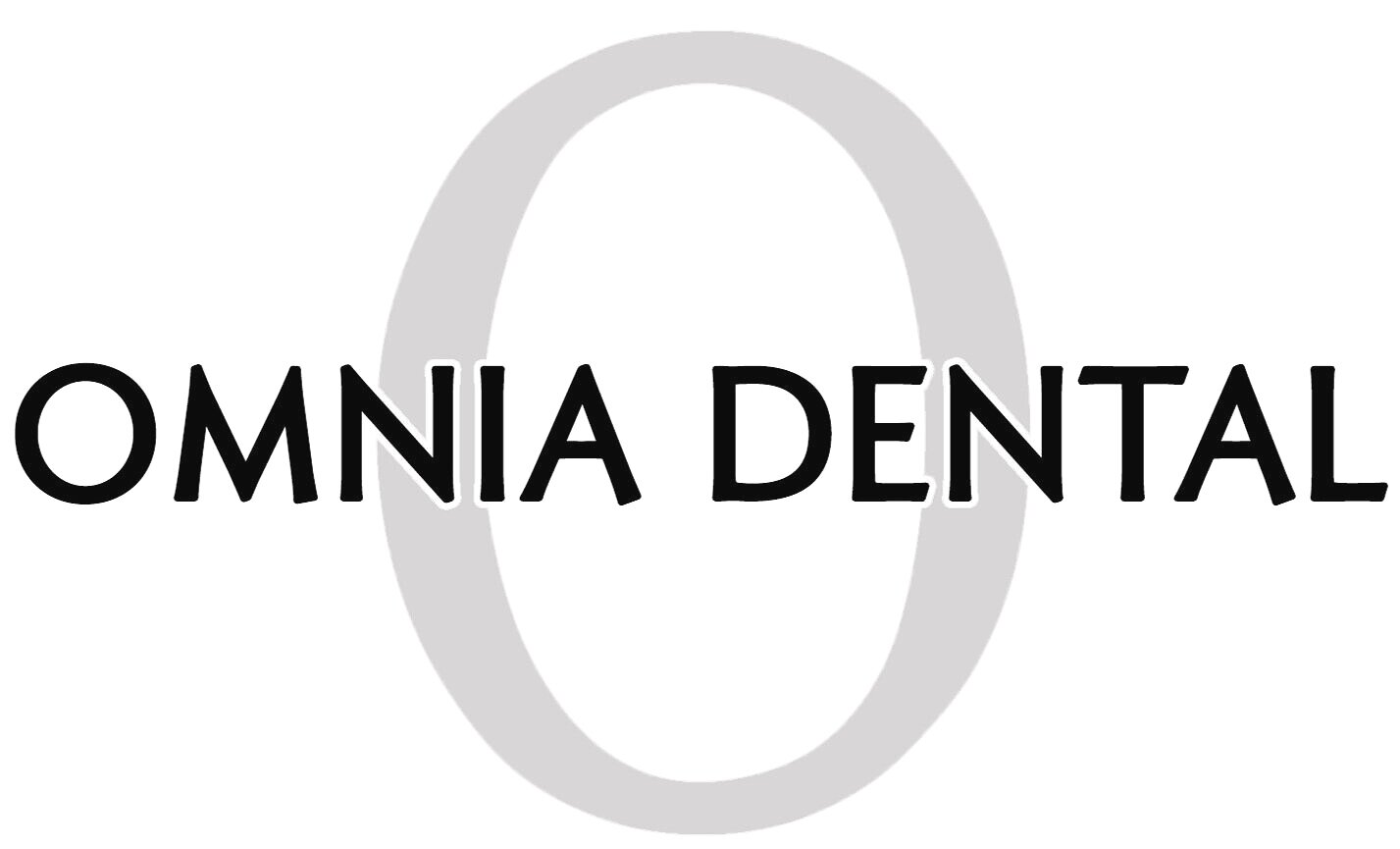Dentist for Full-Mouth Dental Implants
If you want to replace your missing teeth without giving up the comfort and aesthetic appeal of natural ones, dental implants are your best option. At Omnia Dental Care, our expert dentists offer dental implants to replace one or more missing teeth.
To find out if you’re a good candidate for dental implants, call our office to book a consultation.
What are dental implants?
Dental implants are the next best thing to replace missing teeth. They include two parts: a titanium anchor that gets surgically inserted into your jawbone and a restorative part (crowns, bridge, all-on-four, or overdenture).
Implants replace both the visible part of your tooth and the root beneath your gums. Since the titanium post actually stimulates bone growth, dental implants eliminate the risk of bone degeneration after tooth loss.
What are dental implants used for?
Omnia Dental Care offers both single and multiple full-mouth dental implants to improve a variety of oral health problems, such as:
One or more missing teeth
Shifting of existing teeth
Jaw bone degeneration
Impaired chewing and speech
Poor appearance
If you’re missing multiple teeth, our experienced dentists may recommend using dental implants to support a bridge or overdentures. To replace a full set of teeth, Omnia Dental Care offers All-on-4®, a procedure that involves attaching bridges to four implants on your upper and lower jaw.
What are the benefits of Dental Implants?
Dental implants offer many advantages, including:
Smile restoration
Durability
Comfort and convenience
No interference with speaking or chewing
Since dental implants are stronger and sturdier than other tooth replacement options, they’re a cost-effective solution in the long run.
What is Involved in Getting All-on-4 Dental Implants?
The "All-on-X" dental implant procedure is a technique used in implant dentistry to replace missing teeth in a jaw. It's called "All-on-4" because typically, all teeth in one jaw can be supported by a minimum number of just four implants.
Here's how it generally works:
Implant Placement: Four dental implants are strategically placed in the jawbone. These implants act as anchors for the replacement teeth.
Bridge Attachment: A customized dental bridge, which contains a set of artificial teeth, is then attached to the implants. This bridge is usually made of high-quality materials like porcelain and is designed to look and function like natural teeth.
Healing Period: After the implants are placed and the bridge is attached, there is a healing period during which the implants integrate with the jawbone. This process, called osseointegration, is crucial for the stability and long-term success of the implants.
Final Restoration: Once the healing is complete, the final restoration is placed. This may involve adjustments to ensure a perfect fit and bite.
The All-on-4 technique is particularly beneficial for patients who have lost most or all of their teeth in one jaw and want a fixed, permanent solution. It offers several advantages over traditional dentures, including improved comfort, stability, and functionality.
However, like any dental procedure, it's important to consult with our experienced dentists to determine if you're a suitable candidate for All-on-4 implants and to discuss the specifics of your treatment plan.
FAQs
-
All on 4 is a dental implant technique where the upper or lower set of teeth is replaced with just 4 implants. Typically a full arch of porcelain teeth is fitted to your gum line. This ensures that they are permanently affixed to your jaw. They tend to act more like natural teeth in function as well as aesthetics.
-
Full dental implants are obviously a significant change in someone’s life. From the initial consultation to the placement of permanent teeth, the entire process typically takes about three to five months. And, this tenure includes the time to heal completely.
If you are going for full-dental implants, you must know the recovery process varies from person to person. Speak to your dental implants dentist if you feel uneasy.
-
Anyone who is missing a single tooth, multiple teeth, or even all teeth can go consider dental implants. However, we will be able to determine for certain if you are suitable for dental implants after assessing the general condition of your mouth. We even advise you to get your radiographs taken of the area. This will give your dental implants dentist an indication of the amount of bone available for implant placement.
-
Just like your natural teeth, implants need to be looked after with the utmost care as well. There is nothing better than regular checkups to prolong their life. Brushing at least twice a day, flossing, and getting regular dentist appointments scheduled are some of the easiest ways to keep your implants healthy.
We recommend you an annual dental review. This enables them to check the quality of bone and gum health around the implant area.

